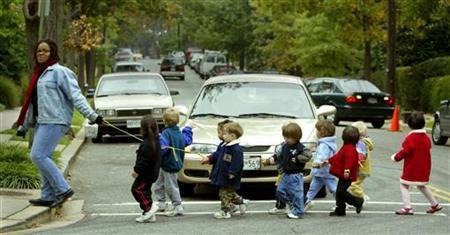Pre-Kindergarten Worsens Academic Achievement, Liberal Think Tank Finds

A liberal-leaning think tank, in its evaluation of a rigorous five-year study of a Tennessee voluntary pre-K program, says there's no evidence to suggest that such interventions can deliver sustained improvements in the academic achievement of economically disadvantaged children and help close the achievement gap for those children.
"There is some as yet poorly understood interaction between the pre-K experience and the experience the children have in subsequent grades that fails to carry forward the momentum they gained in pre-K," says a paper by Brookings Institution on the TNVPK Effectiveness Study, a coordinated effort between Vanderbilt's Peabody Research Institute and the Tennessee Department of Education, a five-year evaluation study funded by the US Department of Education, Institute for Education Sciences.
TNVPK, a full‐day pre-kindergarten program for four‐year‐old children expected to enter kindergarten the following school year and whose family income qualified for free or reduced price lunch, is widely recognized as one of the highest-quality state pre-K programs in the nation.
The study - based on a sample of 1076 children, of which 773 attended TNVPK classrooms and 303 did not - shows that children in VPK classrooms made initial strong gains and were perceived by their teachers at kindergarten entry as being better prepared. But the achievement of the control children caught up to that of the pre-K children by the end of kindergarten. And in second and third grades, achievement trends crossed over, with academic achievement for the pre-K children becoming worse than for the control children.
"State programs that are not careful to protect the instructional environment for 4-year-olds may find the children burning out in the early grades from too much repetition of the same content and instructional format. Rather than building enthusiasm for learning, confidence in their abilities and a foundational understanding of literacy and math, the programs may only be teaching children how to behave in school, an enthusiasm that fades with repeated exposure," the thank tank's evaluation adds.
It concludes that it would be "shortsighted of pre-K advocates to dismiss the TNVPK study merely as an indictment of the quality of the Tennessee program."
"Rather the findings from this most methodologically rigorous study to date raise important questions about what is happening all over the country," the paper argues. "The benefits of pre-K intervention are being pushed without taking time to define what pre-K really means and, worse, to determine whether what has been implemented has produced the promised outcomes."





















